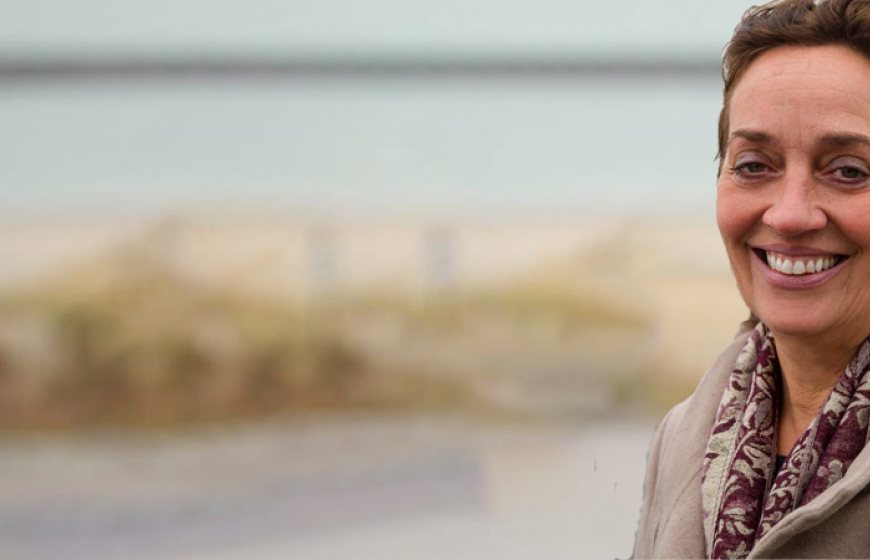Blog
3 December 2020Setting priorities to make sustainable solutions effective

The Netherlands can make a difference internationally with inclusive, sustainable and integrated water solutions. There is increasing recognition of the value of this approach and, with it, increasing opportunities for the Dutch water sector. However, priorities based on knowledge and experience need to be set. After all, you can only spend each euro and hour once. Liz van Duin, Director Water, Soil and Marine at the Ministry of Infrastructure and Water Management and a new Board Member of the Netherlands Water Partnership (NWP), emphasises this.
The Netherlands is good at inclusive and integrated solutions that are sustainable and for the long term. We simply have no other option in our country and we can afford it. In a small country, much of which is below sea level, space is so limited that we have learned to stack functions. Of course we took action to avoid flooding – which had a negative impact on water quality – but we learned about building with nature along the way. What we need is integrated planning for surface and groundwater, both in terms of quantity and quality. We have now built up much experience in this field and have significant added value internationally. Many other urban deltas face much more pressure on space. A good example of our added value is our involvement in the delta plan for the Mekong in Vietnam and in the Bangladesh Delta Plan 2100. The world is ever more open to this approach. And it should be because the urgency is only increasing. In rapidly urbanising deltas the problems are often multi-dimensional: decreasing groundwater levels, soil subsidence and rising sea levels at the same time. We need to focus on the transitions that are needed worldwide, particularly those caused by climate change.
Water action track
This is why the Global Commission on Adaptation, initiated by the Netherlands, has formulated a number of action tracks. In its water action track, the Commission calls for building the resilience of natural and managed freshwater systems and of the critical human systems dependent upon water by 2030. This will reduce risks for over 2.5 billion people currently facing high water stress and the nearly 150 million people annually impacted by floods and droughts. Through the Commission, the Netherlands will share its knowledge on how it has adopted innovative water management solutions as sea levels rise.
If we share knowledge internationally, other countries and regions can learn faster and avoid our mistakes. Just as happened with telephone networks: in large parts of the world, the phase of building a landline telephone network was simply skipped in favour of immediately creating a mobile network.
Value of diplomacy
The Netherlands is a delta and we live and work around the drain, at the lowest point. To ensure the safety of our country, we are dependent on neighbouring countries that we share our transboundary river systems with. Diplomacy in this case comes down to sharing knowledge and joint fact-finding. After all, we often share the same objectives in the long term. In my experience you can achieve a surprising amount by working together, sharing knowledge and upholding common goals. I am convinced that this is how the Netherlands can help in other places in the world too. Knowledge is a strong basis for connecting with others. I firmly believe in this. Governments can build on long-term G2G relationships from which the business community can benefit too. The water sector can still learn a lot from agriculture in that respect.
Diplomacy takes patience. Egypt is a good example. We have been working with Egypt in the field of water for decades. Trust gained slowly is needed to achieve results.
Focus on results
At the same time, given my background of over a quarter of a century working at Rijkswaterstaat (the executive arm of the Dutch Ministry of Infrastructure and the Environment) and one of the water boards, I focus strongly on effectiveness, results and priority setting. Every euro and every hour can only be spent once. We must continuously ask ourselves: what can we do where, what can we offer and what do we get in return? I find it especially interesting to see why some strategies fail, because in my experience you learn faster from mistakes than from others’ successes. You may have an impressive MoU with a country, but if you have been there for years and you don't get much out of it, do you want to continue to spend your limited time and resources on it? This is the thinking behind our Partners for Water Programme. And, for the same reason, I believe that we should consider how we can make the Amsterdam International Water Week even more effective. We all believe that we should hold the event, but we should do it in the best way possible to have the most impact.
I also firmly believe that cooperation is a two-way street. We can learn a lot from other countries, for example in dealing with drought. I advocate modesty, that is, we should focus on the challenges where we can demonstrably make a difference.
Strengthen the connection
Through G2G relationships we work with other countries on a sustainable long-term approach in line with the SDGs and the Dutch International Water Ambition, and on targeted projects. A good example of this is the country’s Blue Deal in which the 21 water boards collaborate with the Ministry of Foreign Affairs and the Ministry of Infrastructure and Water Management. G2G also enables us to create opportunities for the Dutch business community. I really hope that we can strengthen the connection between Government, business, knowledge institutes and NGOs. I believe that we should move even more strongly towards a joint scope and determine who takes the lead. It will sometimes be the Government, at other times the business community for example. I see a clear role for myself in making these connections.